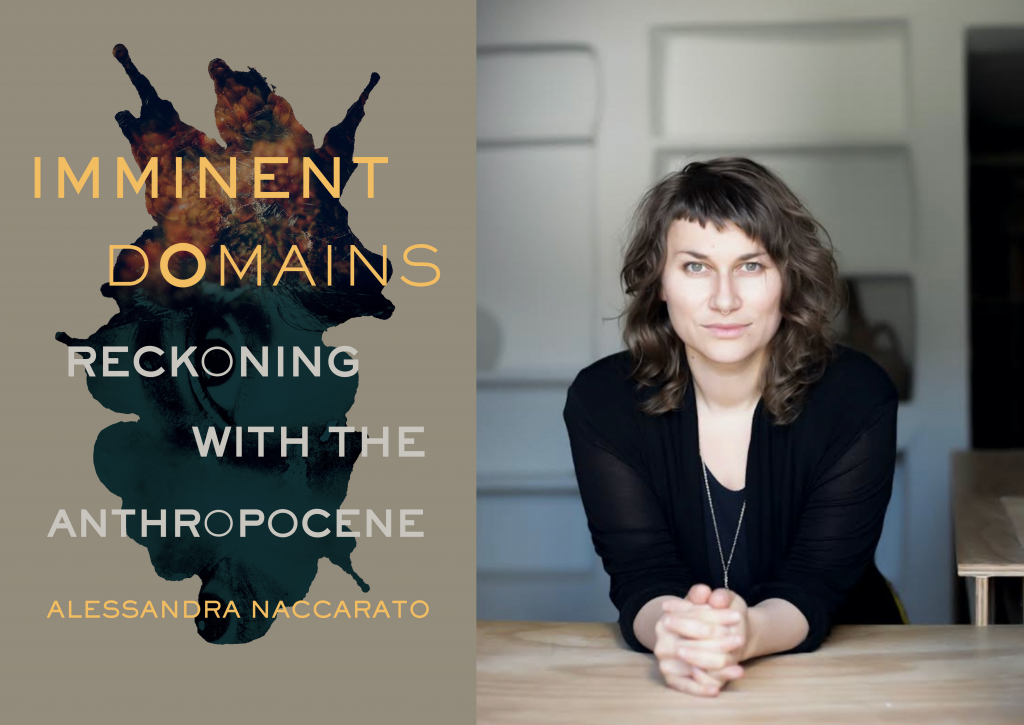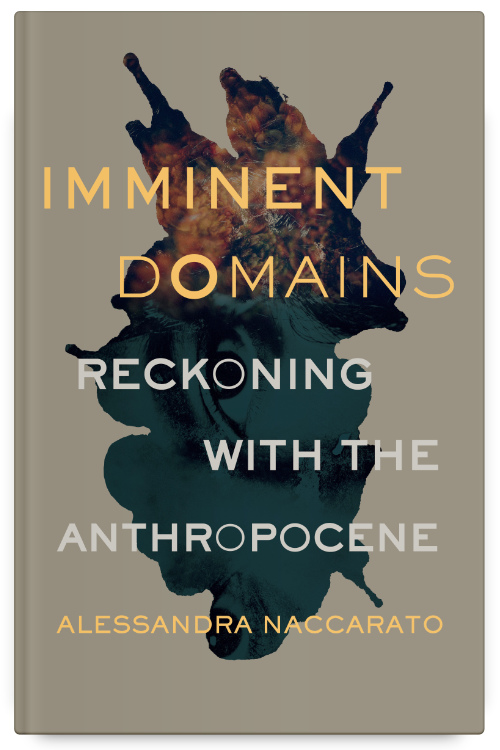Fall 2022 Nonfiction Preview: Imminent Domains by Alessandra Naccarato

Next in our Fall 2022 Preview Series is Imminent Domains: Reckoning with the Anthropocene by Alessandra Naccarato. This collection of lyrical essays—the latest addition to our Essais Series—traces the veins of harm, memory, and meaning amongst ecosystems, and invites readers to join a contemplation of survival—our own, and that of the elements that surround us.
“A book so unique it feels like a genre unto itself—an inquest, a love letter, a dirge, an electrifying epic, a timely tincture, a heart-stopping memoir of stones. Alessandra Naccarato takes us across geographical, emotional, and communal domains to the heat points of ecological survival and love,” writes Kyo Maclear, author of Birds Art Life.
Below is an excerpt from the book’s Introduction, expressing Naccarato’s aim to explore our connection with the natural world through a hermeneutics of intimacy, multiplicity, and uncertainty. Imminent Domains will be released on October 25, 2022, and is available now for pre-order now from our online shop or from your local independent bookstore.

The luxury and the challenge of these essays is to study the patterns, uncertainties, and intimacies between us. I come back to the term Anthropocene because it’s part of the public lexicon—it’s the main story being told—and I think those stories matter. Stories are a fundamental part of global systems; they not only interpret and define world change, they create it. The splitting of the atom began with a sequence of numbers, a theory, a conversation. The Anthropocene is a framework that can and will lead to research, funding, and policy; the idea carries geological weight. To me, what does seem fitting about the term is that it’s personal and self-reflexive. Like anthropology or anthropomorphism, its bias is easy to find. The word points at us as we point toward it. It doesn’t let the mirror disappear into a landscape of plastic bags and isotopes.
The threshold of an epoch is measured by geological change and widespread impact on the fossil record. Our plastic and tailing ponds—they leave an indelible mark. But records of world change are also—and mostly—living ones. Living records carried in each one of our bodies, our families, our stories, our lives. My ancestors live on in me through blood, through harm, through knowledge and responsibility. I come back to this fact and anchor my work here. What I want to bring to this conversation of world change is not discovery—a doctrine itself entangled with colonialism; I want to bring what each person carries: my own thumbprint of this crisis, my own way to turn toward the fire. There are infinite variations, and that’s what we need, I think—that’s what ecosystems call for to function: variation, contrast, divergence, multiplicity. There are no singularities or straight lines in nature; no heroes, no hierarchies in the forest. There is a deep understory; a mycorrhizal, fungal network that runs beneath the trees, tiny threads of mycelium that connect individual plants, transferring water, carbon, nutrients, and knowledge.
Alessandra Naccarato is the author of Imminent Domains: Reckoning with the Anthropocene (Essays) and Re-Origin of Species (Poems). Born and raised in Tkaronto (Toronto), she is the recipient of the RBC Bronwen Wallace Award and the CBC Poetry Prize, and her poetry and essays have appeared widely in publications such as The New Quarterly, Room Magazine, and Event. She holds an MFA in Creative Writing from the University of British Columbia, and a graduate degree in Community Economic Development from Concordia University, supporting two decades of work and research in grassroots social change, community arts, and the prevention of gender-based violence. Her debut poetry collection, Re-Origin of Species, was awarded the AICW Bressani Literary Prize for Poetry, shortlisted for the Gerald Lampert Memorial Award, longlisted for the Pat Lowther Memorial Award, and named a Best Book of 2019 by CBC Books.

